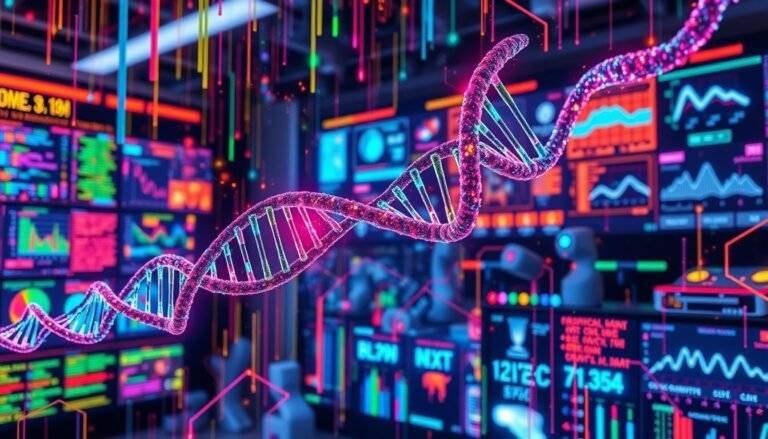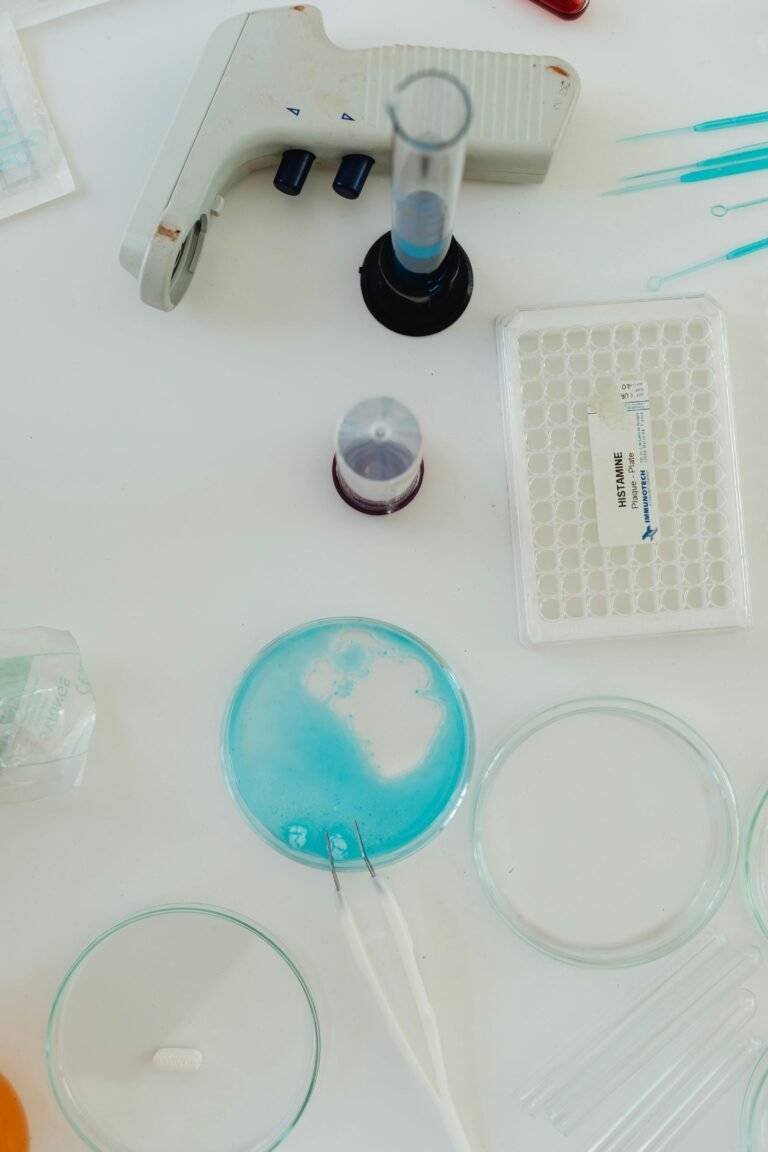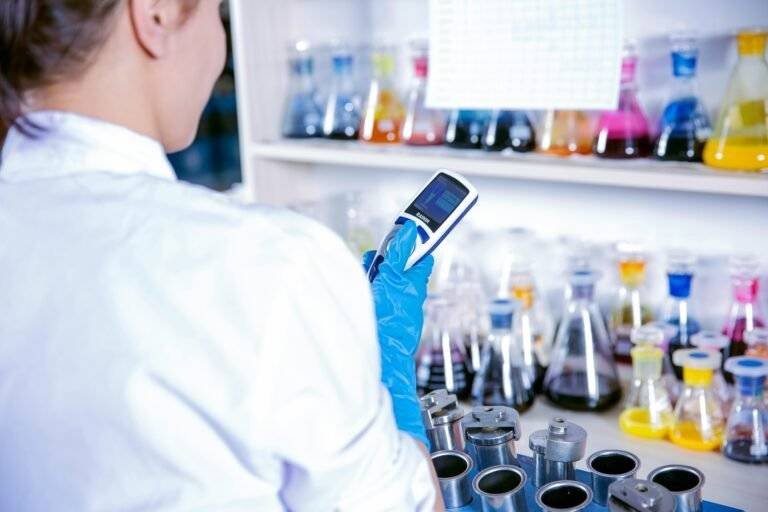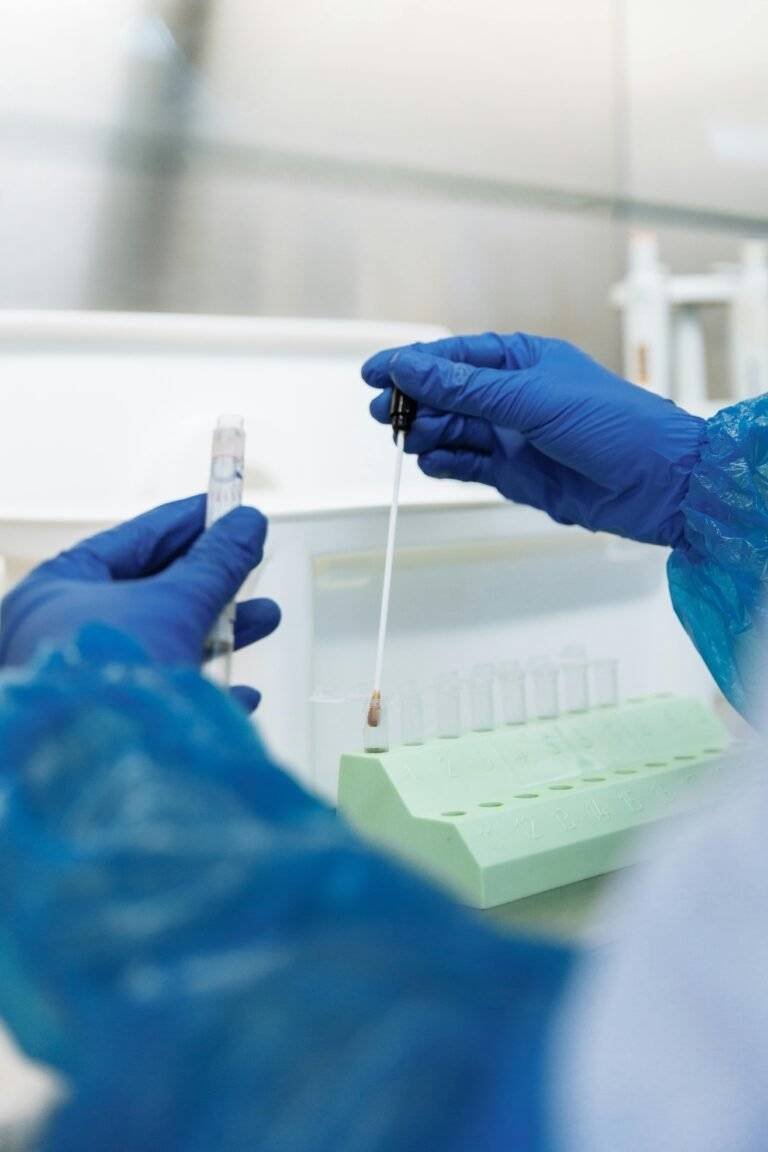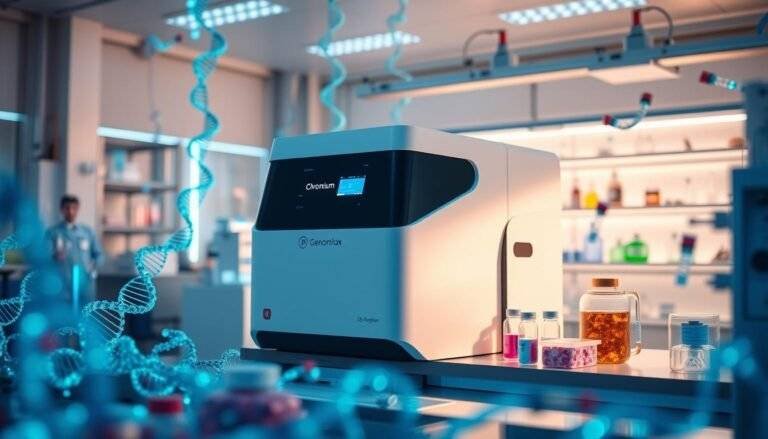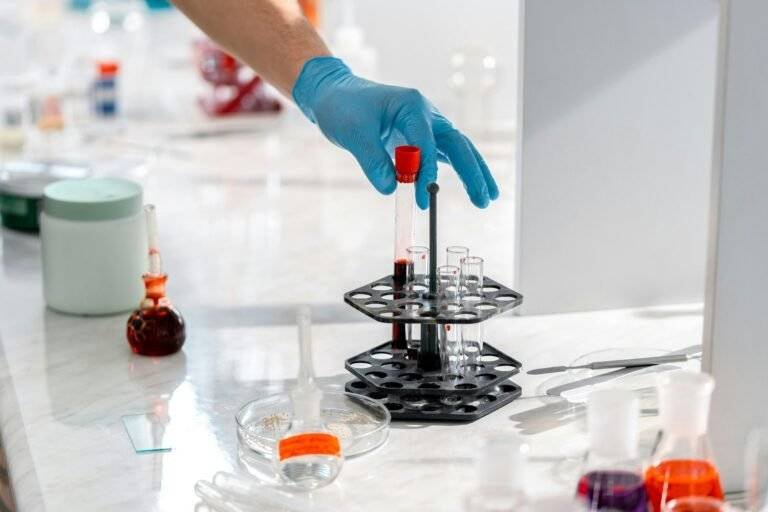What cancers can be detected through genetic testing?
Genetic testing is changing how we find and learn about cancer. It looks at a person’s DNA to show if they might get certain types of cancer, especially those that run in families.
The FDA has given a thumbs-up to the Invitae Common Hereditary Cancers Panel. This special blood test checks 47 genes tied to cancer that might be inherited. It’s a big step forward in catching cancer early.
About 10% of cancers come from changes in genes you get from your parents. Testing can help you learn if you’re more likely to have certain cancers. This info is very helpful for managing your health.
Key Takeaways:
- Genetic testing can detect hereditary forms of cancer by analyzing a person’s DNA.
- The FDA-approved Invitae Common Hereditary Cancers Panel is a groundbreaking blood test that analyzes 47 genes associated with cancer risk.
- About 10% of cancers are caused by genetic changes passed down from parent to child.
How does genetic testing determine cancer risk?
Genetic testing helps find out the chance of getting cancer. It looks at someone’s DNA to see certain changes that might show a higher cancer risk. But remember, testing your genes isn’t the only way to know if you might get cancer. Your health history and your family’s also tell a lot.
Doctors look for specific changes in your DNA. These changes can point to a bigger chance of getting cancer. They might be from your parents, or they could pop up out of nowhere during your life.
Your health history and your family’s can give clues too. For example, if many family members had the same cancer, you might have a higher risk. It’s all about looking for patterns in your family’s cancer history.
“Genetic testing, combined with personal and family medical histories, allows healthcare professionals to develop a comprehensive understanding of an individual’s cancer risk.”
Combining genetic tests with your health and family history is key. It gives doctors a better idea of your personal cancer risk. With this info, they can recommend the right screenings, prevention steps, and treatments for you.
Genetic testing is useful but not everything. Not all gene changes lead to cancer. Plus, it may not be for everyone. It’s important to talk to your doctor or a genetic counselor first. They can help you decide if testing is right for you and tell you what to expect.
Understanding the Link between Genetic Mutations and Cancer Risk
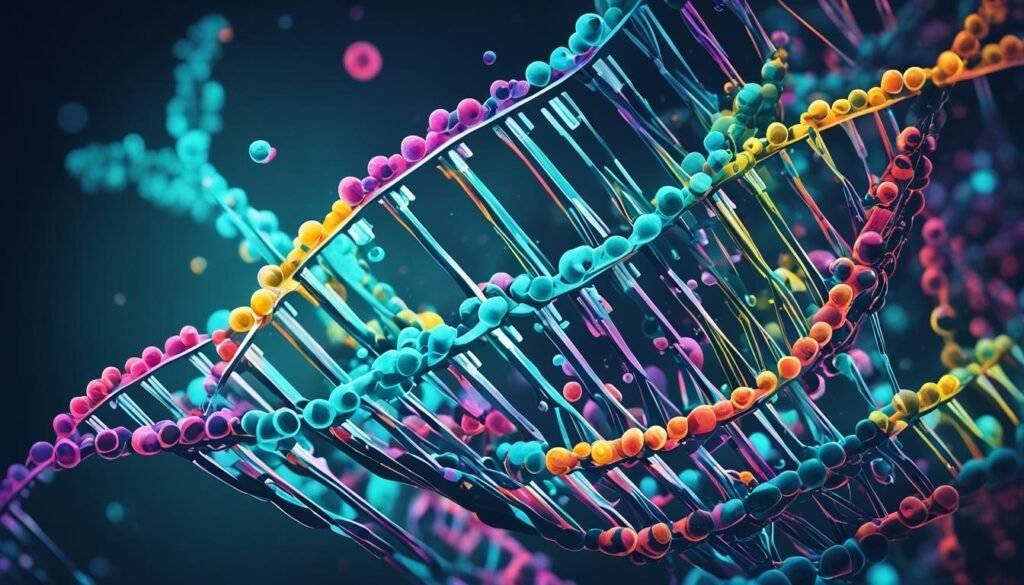
What is the significance of the Invitae Common Hereditary Cancers Panel?
The Invitae Common Hereditary Cancers Panel is important for public health. This blood test checks 47 genes linked to hereditary cancer. It tells people crucial info about their cancer risk and health.
This panel helps those with a higher cancer risk. It looks at genetic changes in the 47 genes. This helps people understand and lower their cancer risk.
The Invitae Common Hereditary Cancers Panel gives people health knowledge. It helps them make choices for their well-being.
This panel is key for managing health with genetic risks. It looks for mutations that might raise cancer risk. Then, it guides in making a personalized health plan with a doctor.
The Invitae Common Hereditary Cancers Panel offers better health care. It finds risks early, leading to proactive steps and treatment. This knowledge protects not only the individual but also their family.
What are the benefits of the Invitae Common Hereditary Cancers Panel?
| Benefits of the Invitae Common Hereditary Cancers Panel |
|---|
| Identification of individuals at increased risk of hereditary forms of cancer |
| Empowerment through knowledge of personal cancer risk |
| Chance for proactive cancer risk management |
| Spotting cancer early with screening |
| Opening for life-saving cancer care |

How can genetic test results guide medical care?
Genetic test results help shape medical care for those at genetic cancer risk. They find inherited cancer-causing gene changes, guiding treatment tailored for each person.
For example, those with risky BRCA1 or BRCA2 gene changes need special care. They can lower cancer chances by acting early.
“The identification of harmful variants in the BRCA1 or BRCA2 genes can prompt healthcare providers to recommend regular and earlier breast cancer screenings, such as mammograms or magnetic resonance imaging (MRI), as well as increased surveillance of ovarian cancer through transvaginal ultrasound or the measurement of tumor markers,” says Dr. Sarah Thompson, a top oncologist.
Genetic tests also help choose the best cancer treatments for each patient. This approach, called precision medicine, matches treatments with genetic marks. This can make treatments more effective.
“Genetic tests show the kinds of mutations in someone’s cancer. Knowing this, doctors can pick the best treatments. This can help patients a lot and cut down on treatment that doesn’t work,” says Dr. James Reynolds.
Doctors use genetic results to make personal cancer risk plans. This could include more checks, surgeries to lower risk, meds, or lifestyle changes.
Genetic testing has transformed cancer care. It helps both doctors and patients make choices that are right for them. This boosts care and patient results.
Examples of Genetic Test Results Guiding Medical Care
| Genetic Test Result | Medical Care Interventions |
|---|---|
| Positive BRCA1 gene mutation | – Initiate breast cancer screening at an earlier age |
| Positive BRCA2 gene mutation | – Consider preventive measures, such as risk-reducing mastectomy or removal of the ovaries and fallopian tubes |
| Hereditary nonpolyposis colorectal cancer (HNPCC) gene mutation | – Implement regular colonoscopies and other screening methods for early detection of colorectal cancer |
| Positive EGFR mutation in lung cancer | – Tailor treatment plans with targeted therapies, such as tyrosine kinase inhibitors |
Doctors use genetic tests to give specific care. This can mean spotting disease early, stopping it, or treating it in a targeted way. The aim is to make patients’ lives better.
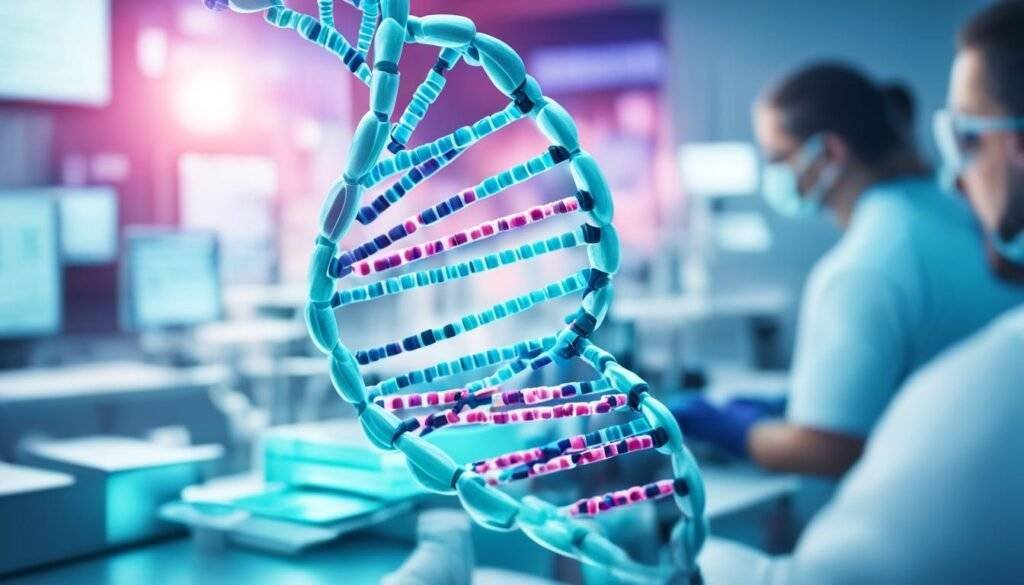
What is the role of genetic counseling in genetic testing for cancer risk?
Genetic counseling is key in the process of genetic testing for cancer risk. It’s done by experts called genetic counselors. They give detailed info and support before and after the tests.
Their main goal is to make sure people understand the tests properly. They help interpret results and decide on managing cancer risk. This includes what preventive steps can be taken.
Genetic counselors listen to people’s worries and offer emotional support. They help folks see what the test results mean in their unique situation. This makes the cancer risk picture clearer for individuals.
Genetic counselors are great at giving personalized advice. They help people understand the test results. This info encourages them to take steps to lower their cancer risk.
They also play a big part in making sure choices are well-informed. They equip individuals with facts and tools. This helps make decisions that fit their life and values.
Genetic counseling goes further than one-on-one talks. Counselors share info with other health pros. They help create plans for cancer screening and prevention that are tailored to each person.
Benefits of Genetic Counseling in the Genetic Testing Process:
- Providing accurate information about genetic testing procedures, benefits, and limitations
- Evaluating personal and family medical histories to assess cancer risk
- Interpreting genetic test results and explaining their implications
- Addressing individual concerns and providing emotional support
- Facilitating informed decision-making
- Collaborating with healthcare professionals to develop personalized cancer screening and prevention plans
By working with genetic counselors, those testing for cancer risk learn a lot. This knowledge helps them make confident healthcare choices. It’s good for their health and peace of mind.
What are the different types of genetic testing for cancer risk?
There are many ways to check someone’s cancer risk with genetic testing. One type is called predictive testing. It looks for gene changes that might raise your chance of getting certain cancers.
This test is good for people with a strong family history of cancer. It’s also useful for those already facing cancer. It can find out if there are any gene changes that could make these cancers more likely.
There are several testing methods based on what a person needs. Here are some examples:
- Single-gene testing: This test looks at one gene closely. It’s helpful if you know about a specific gene that causes cancer.
- Multi-gene panel testing: With this type, many genes are checked at once. It gives a broad view of your cancer risk.
- Whole exome sequencing: This test looks at all your DNA’s protein-making parts. It finds rare gene changes that could up your cancer risk.
- Targeted mutation analysis: It zeroes in on certain gene changes linked to higher cancer risks. This test can point out your risk factors.
Each test has its good points and things to think about. It’s key to talk with a doctor or genetic counselor. They can help choose the best test for your situation.

Who can benefit from genetic testing for cancer risk?
If cancer runs in your family, genetic testing can help you understand your risk better. It’s useful for those with multiple relatives with cancer. Also, if you got cancer at a young age, this test could be beneficial.
If you see a lot of one type of cancer in your family, it might be an inherited risk. This test can find if your DNA has these risky changes. Then, you can look at your chances of getting cancer.
Being young when diagnosed with cancer could hint at certain genetic issues. These issues might make cancer strike early. Knowing if you have such a risk can help your doctor plan better care.
If many in your family share the same type of cancer, it could be from a common genetic error. The test can find this error in your DNA. Understanding your genetic risk is crucial.
Overall, this test is informative. It lets you know your cancer risk, aiding in better care and prevention. It’s a step towards managing your health actively.
Example of a Genetic Testing Beneficiary: Jenna’s Story
“I come from a family where breast cancer is common. My mom and grandmother were diagnosed young. So, I decided to get genetic testing. It showed I could get breast and ovarian cancer more easily. With this info, I could plan my health steps better. Testing gave me peace and ways to lower my cancer odds.”
Who Should Consider Genetic Testing for Cancer Risk?
Consider genetic testing if you:
- Come from a family with lots of cancer of the same type.
- Had cancer at a young age, which was not usual.
- Are from groups known to have certain cancer-linked gene changes.
- Had more than one type of cancer.
- Know you have a specific cancer gene change.
| Criteria | Potential Indication for Genetic Testing |
|---|---|
| Strong family history of cancer | Multiple relatives with the same type of cancer |
| Personal history of cancer at a younger age | Diagnosed with cancer before the typical age range |
| Belonging to certain ethnic or racial groups | Elevated rates of specific genetic mutations |
| Multiple primary cancers | Diagnosed with cancer more than once |
| Known genetic mutation in a cancer-related gene | Previously identified as carrying a cancer-related genetic mutation |
It’s smart to discuss with a doctor or genetic counselor if you should get the test. They can help you weigh the risks and benefits.
What is genetic counseling and why is it important?
Genetic counseling is key when considering cancer risk through genetic testing. It arms people and their families with crucial facts and encouragement. This helps them grasp the meaning of genetic testing.
These counselors are experts in both genetics and counseling. They help analyze test results and discuss what they mean. They support patients all along the genetic testing journey.
The main aim of the counseling is to inform people about their genetic risks. Counselors talk through details, making sure families understand tests results well.
“Genetic counseling provides individuals and their families with important info and support. This helps them understand how genetic tests might influence their health choices.”
Also, counselors aid in making crucial choices about handling cancer risks. They simplify the complex genetic test info and advise on steps to prevent or spot cancer early.
Having counselors involved is vital for properly understanding test results. They clear up doubts or fears about the tests and what they mean for health.
Genetic counselors’ knowledge and guidance are crucial. They ensure people fully understand their genetic test results. This helps them wisely manage their cancer risk.
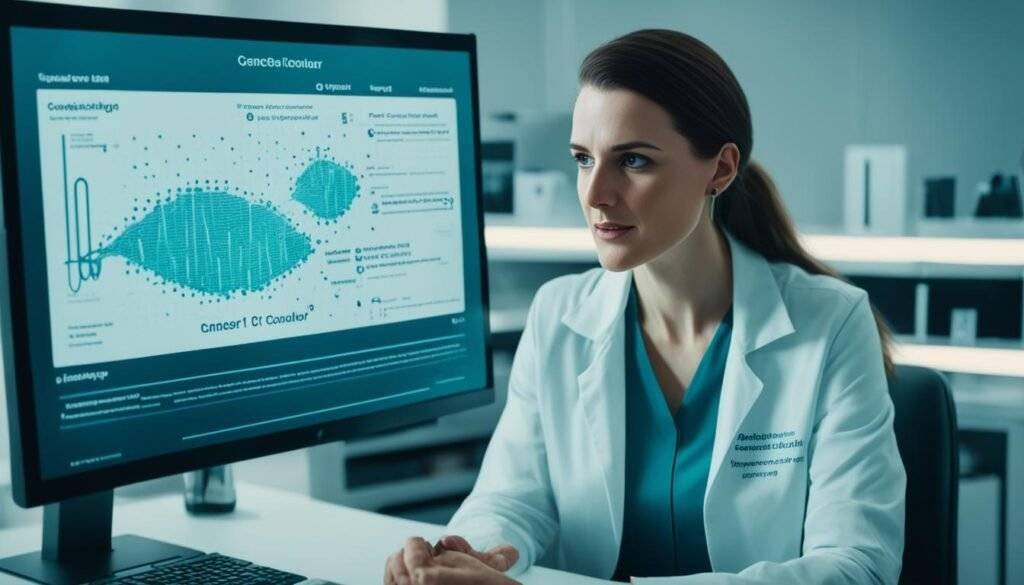
How Genetic Counseling Works
Here’s how genetic counseling usually goes:
- First, your and your family’s health history is looked at. This helps see if cancer might run in your family.
- Next, the counselor talks to you about genetic testing. They explain what it is, what it could show, and how it affects you and your family.
- They then estimate your chance of getting cancer based on the details. If needed, they suggest which genetic tests to take.
- If a test is recommended, the counselor helps get it done.
- They also help understand the results in the context of your family history.
- Finally, they give tips on how to lower your cancer risk and what to do next.
Through detailed info, support, and advice, genetic counseling helps families. It aids in making wise choices about health and cancer risk.
What are the benefits of genetic testing for cancer risk?
Genetic testing for cancer risk has many key benefits. It can tell you if you’re at risk for certain types of cancer. This can help in a few ways:
- Guidance for medical care: Doctors can use genetic testing results to make a personalized treatment plan for you. They can also help you find ways to prevent cancer. This could lead to better outcomes and how well cancer is managed.
- Early detection: This type of testing finds cancer sooner. Finding it early makes it more likely that treatment will work. It’s especially helpful for people at a higher risk. They can get checked more often. This means finding cancer before it shows symptoms.
- Informed decision-making: Knowing your cancer risk helps you make choices about your health. You can start making changes to your lifestyle. You might also have more frequent check-ups or surgeries to prevent cancer. This could lower the cancer’s effect on your life.
- Personalized risk assessment: It helps you and your family understand the cancer risks in your genes. This can make you aware and take steps to lower these risks. Plus, it helps choose the right medical care for you.
“Genetic testing for cancer risk provides individuals with valuable information about their genetic predisposition, guiding medical care, enabling early detection, and informing decisions about preventive measures.”
Learning about your genes can be key in lowering your cancer risk. It lets you lead your health and make choices. Talking with doctors and genetic counselors can make your test results really helpful. They can give you steps for a healthier tomorrow.
| Benefits of Genetic Testing for Cancer Risk |
|---|
| Guidance for medical care |
| Early detection |
| Informed decision-making |
| Personalized risk assessment |
What are the disadvantages of genetic testing for cancer risk?
Genetic testing for cancer risk has many good points. But, knowing the downsides is crucial too.
1. *Psychological distress*: A big issue with genetic testing is how it affects your feelings. Finding out you’re at higher risk for cancer can make you scared or sad. It’s key to get help from a counselor or support group to handle these emotions.
2. *Family relationships*: Your test results might change how your family gets along. Testing positive for a gene mutation might cause arguments. It might also make talking and understanding each other harder. Experts and open talks in the family can ease these issues.
3. *Privacy concerns*: Privacy is another worry for some people. They might fear their genes could be seen or used without permission. It’s vital to pick a trusted testing company. They should keep your info safe and have strong privacy rules.
4. *Potential discrimination*: Knowing you’re at more risk could affect your life. It might change things in health, life insurance, work, or social life. The GINA law in the US stops genetic type-based discrimination. But, it’s smart to know your rights and get advice when needed.
Taking time to think over the pluses and minuses of genetic tests is key. Talking with doctors and genetic counselors is important. They can help you make a smart choice.
Quote:
“Genetic testing provides useful info on cancer risk. But, think about how it might affect your emotions, family, and privacy first.” – Dr. Sarah Thompson, Genetic Counselor
Pros and Cons of Genetic Testing for Cancer Risk
| Pros | Cons |
|---|---|
| Early detection and prevention | Potential psychological distress |
| Personalized medical care | Impact on family relationships |
| Increased awareness of cancer risk | Concerns about privacy |
| Potential for preventive interventions | Potential discrimination |
How do genetic mutations cause cancer?
Genetic mutations are vital in cancer’s start. They change how our cells work, especially in their growth and division. These changes are found in our DNA, making cells grow out of control. This leads to tumor formation and cancer spread.
Some gene mutations affect how cells normally grow and divide. For example, tumor suppressor genes help slow down cell growth. If these get mutated, they can’t control growth anymore. This leads to cells multiplying too much.
Because of these gene errors, cancer cells grow uncontrollably. They form tumors that can move into nearby tissues and spread elsewhere. This spreading is called metastasis.
To sum up, mutations impact cell behavior, causing cancer to grow. Learning about these genetic changes is key to understanding and treating cancer.
What genetic mutations cause cancer?
Genetic mutations are key in how cancer starts. They can show up in different genes. This makes the risk of getting specific cancers go up. For instance, mutations in BRCA genes raise the risk of breast and ovarian cancer. And mutations in the TP53 gene can cause the Li-Fraumeni syndrome, leading to several cancer forms.
Mutations can hit many genes, changing cancer risk. Tumor suppressor genes are crucial in this. They help control cell growth, keeping us safe from tumors. But, if these genes mutate, they can’t do their job. This lets cancer form by out-of-control cell growth.
Tumor suppressor genes are like cell guardians, managing cell growth. Yet, if they mutate, they can’t stop cells from growing fast. Then, tumors can start and maybe spread to other parts of the body.
Understanding specific mutations tied to cancer is vital. It helps in knowing how cancer grows. This knowledge helps in making treatments better. Researchers and doctors can work on medicines and treatments focused on these mutations. This makes fighting cancer more effective.
What cancers can be caused by hereditary mutations?
Some cancers can be more likely if you have hereditary mutations. Well-known ones are:
- Breast cancer
- Ovarian cancer
- Colon cancer
- Uterine cancer
- Pancreatic cancer
- Prostate cancer
- Stomach cancer
- Thyroid cancer
- Kidney cancer
Remember, not every cancer is hereditary. Genetic tests can check if you have a higher risk.
“Genetic testing is key for finding people with mutations that up cancer risk. Knowing this can help manage and lower their risk, maybe stopping cancer early or treating it better.”
Understanding Hereditary Mutations and Cancer Risk
First off, let’s explain hereditary mutations. These are changes in your genes passed from parents. They can change how your cells grow and divide.
Cells start growing wrong because of these mutations. This can lead to cancer.
Some mutations raise your chance for certain cancers. Tests can show if you have these mutations. Then, doctors can plan how to keep you healthy.
Genetic Testing and Identifying Hereditary Mutations
Genetic testing finds these mutations in your DNA. It warns you about certain cancer risks.
It’s especially helpful for families with a history of these cancers. Doctors can then watch out and help lower your risk.
Importance of Early Detection and Preventive Measures
Finding out early is key in cancer care. Tests for mutations can start checks sooner. They also suggest ways to prevent cancer.
Take breast cancer risks, for example. People with certain mutations might start tests earlier. They might also choose options like surgery to lower cancer chances.
If you find you have a mutation, your family should check too. This helps everyone make smart health choices.
| Type of Cancer | Main Genetic Mutations |
|---|---|
| Breast cancer | BRCA1, BRCA2 |
| Ovarian cancer | BRCA1, BRCA2 |
| Colon cancer | APC, MUTYH |
| Uterine cancer | MLH1, MSH2, MSH6, PMS2 |
| Pancreatic cancer | BRCA1, BRCA2 |
| Prostate cancer | BRCA1, BRCA2 |
| Stomach cancer | CDH1 |
| Thyroid cancer | RET |
| Kidney cancer | VHL |
Who should consider genetic testing for cancer risk?
Genetic testing for cancer risk is very helpful. It gives people important facts about their chance of having certain cancers. If you or your family have had cancer before, especially the same type, testing could be a good idea. It’s also useful if you are from a group that often has certain genetic changes linked to cancer.
Talking with a healthcare provider or genetic counselor is key before deciding. They will look at your risks and explain what testing can and can’t do. They’ll help you understand everything from the test itself to what the results mean. Plus, they give advice that fits your own health situation.
Not everyone needs genetic testing. Deciding to get the test is personal and should be well thought out. Your doctor or counselor will help you think through the benefits and risks specifically for you. They consider your health, your family’s health, and other factors to steer you in the right direction. This way, if you do go ahead with testing, you’ll feel it’s the best choice for your situation.
Conclusion
Genetic testing for cancer risk is a helpful tool. It gives people key info on their cancer chances. By checking someone’s DNA, it can help with early detection and choices in preventing cancer.
Taking genetic tests comes with good and bad sides. It lets people be active about their health. Yet, it might stress them out and make them worry about sharing DNA data, plus facing discrimination. Talking to a healthcare or genetic counselor is wise before deciding.
In general, cancer risk genetic tests are game changers. They make healthcare more personal and give power to those fighting cancer. By knowing their genetic chances, people can work to prevent and catch cancer early, improving their health.
FAQ
What cancers can be detected through genetic testing?
Genetic testing can find cancers like breast, ovarian, and colon cancer. It also looks for hereditary types, including uterine, pancreatic, and prostate cancer.
How does genetic testing determine cancer risk?
Genetic testing studies DNA for genetic changes linked to cancer. It checks for gene mutations that might raise the risk. It also looks at family health histories to see the chances of getting cancer.
What is the significance of the Invitae Common Hereditary Cancers Panel?
The Invitae test checks 47 genes tied to family cancer risks. It’s special because it was the first of its kind okayed by the FDA. This test gives a clear view of someone’s cancer risk.
How can genetic test results guide medical care?
These tests help doctors find inherited gene problems that could cause cancer. With this info, doctors can pick the best ways to check and treat cancer.
What is the role of genetic counseling in genetic testing for cancer risk?
Genetic counselors are key in the process. They explain test details, deal with results, and help decide on care steps. They provide support and info to make informed choices.
What are the different types of genetic testing for cancer risk?
Predictive testing looks for specific gene flaws that might up someone’s cancer risk. It’s usually for those with lots of cancer in their families.
Who can benefit from genetic testing for cancer risk?
People with lots of cancer in their family can gain from these tests. This is especially true if there’s the same cancer type often. Some ethnic groups also have a higher chance of certain cancer-related genes.
What is genetic counseling and why is it important?
It’s crucial for understanding what your genes might mean for cancer. Counselors help you and your family grasp the test and its impact. They make sure you’re making informed choices.
What are the benefits of genetic testing for cancer risk?
These tests tell you if you’re likely to get certain cancers. This lets you get the right care early or make lifestyle changes to lower your risk.
What are the disadvantages of genetic testing for cancer risk?
While helpful, these tests can also stress you out. They might also change how you see your family or make you worry about privacy and discrimination.
How do genetic mutations cause cancer?
They can mess up how cells grow and make tumors. Certain gene flaws throw off the control over cell growth, letting cancers form.
What genetic mutations cause cancer?
Many gene changes can make cancer more likely. For example, BRCA gene issues up breast and ovarian cancer risks. Mutations in genes that normally suppress tumors may also be involved.
What cancers can be caused by hereditary mutations?
Hereditary changes can up your chance of many cancers. This includes breast, ovarian, and colon cancer, to name a few.
Who should consider genetic testing for cancer risk?
If cancer runs in your family or if you’re from a group known for certain gene faults, consider testing. This is especially true if a specific cancer type is common in your family.
Conclusion
Genetic testing is a powerful tool in understanding cancer risks. It helps us plan our health, find cancer early, and adjust our lifestyles. But, it’s wise to consider all effects, good and bad, and talk with experts to decide what’s right for you.

